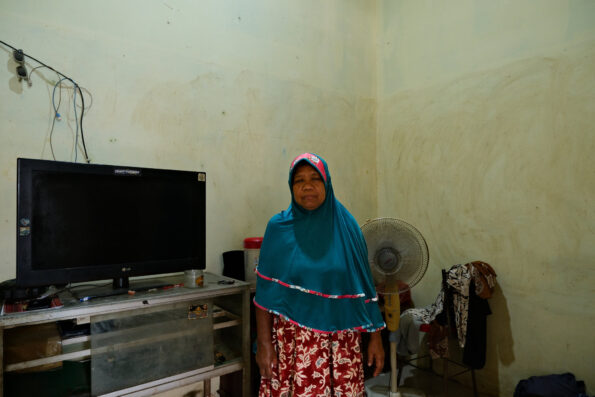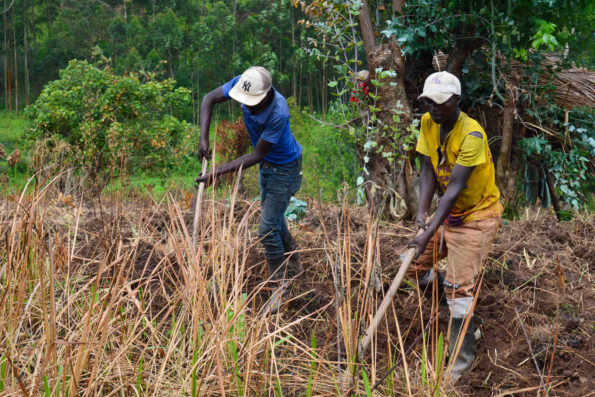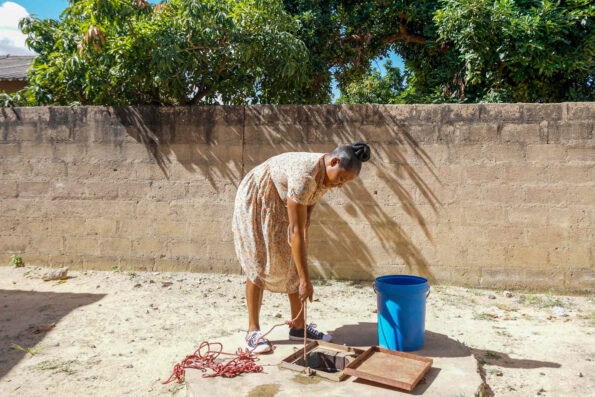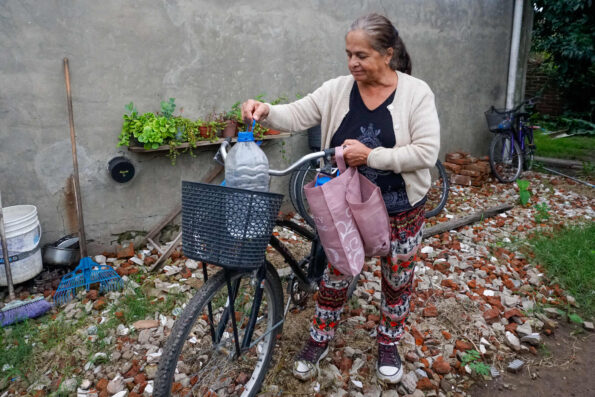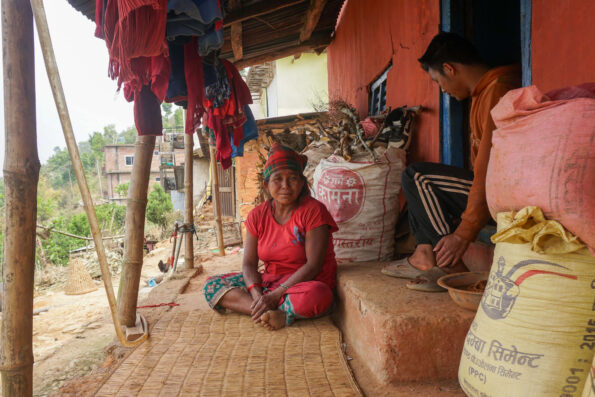
Lucila Pellettieri, GPJ Argentina
Paola Valenzuela poses for a portrait in her kitchen in Villa Fiorito. Valenzuela, a mother of five, says sewage spills into her toilet roughly every 10 days, endangering her family's health.
VILLA FIORITO, BUENOS AIRES PROVINCE, ARGENTINA — When Paola Valenzuela wakes up to a stench and the sounds of her daughters retching, she knows sewage has once again bubbled up from the neighborhood’s pipe system and into her toilet. She can’t flush it back down.
It happens about every two weeks, sometimes more — every time a truck works on the septic chamber connected to her house. When the sewage comes, Valenzuela tries to combat the smell by scattering bleach across bathroom tiles and floors and lighting incense. She throws open the windows, but there’s sewage outside too, flooding the streets and sidewalks. Children play there barefoot, saving their single pairs of shoes for school.
Valenzuela has five daughters. She’s lived in the neighborhood for 30 years. But this summer was filled with visits to doctors’ offices, she says, because of the sewage. Her youngest battles intestinal parasites.
“In my house, it’s like they take turns. One gets cured, and the other one gets it,” she says.
For years, residents in Campo Unamuno, a group of five of the many low-income neighborhoods known as barrios populares, in the Province of Buenos Aires, have fought for the government to fix and expand their sewage system, which was damaged during storm-drain construction about a decade ago.


In 2022, the National Entity of Water and Sanitation Works approved a plan to connect the community to proper sewage lines. But the plan stalled in November 2024, when President Javier Milei’s government slashed the budget and dissolved the entity. The government claimed this was to optimize resources due to departmental overlap. The Subsecretariat of Water Resources, which absorbed the entity’s functions, did not reply to Global Press Journal’s request for comment.
Sewage problems are nothing new in Villa Fiorito, the locality of 58,000 people where Campo Unamuno is located. Most of the affected neighborhoods have informal housing, where sewage networks were never built. The locality is an extreme example of a nationwide sewage crisis: Nearly 40% of Argentines lack access to public sewage systems, according to the 2022 census.
Without functioning infrastructure, residents in this neighborhood rely on vacuum trucks to empty septic tanks. The trucks were contracted by the Municipality of Lomas de Zamora and ACUMAR, an agency created in 2006 by court order to clean up the heavily polluted Matanza-Riachuelo Basin. Villa Fiorito sits on the bank of the basin, where approximately 70% of the pollution stems from a lack of proper sewage.
But this system is failing, too. Juan Jara, who supervises the trucks, says weekly service has been cut from nine visits to four since July 2024.
A source within ACUMAR, who requested anonymity for fear of losing their job, confirmed that the agency lacks funds to maintain the service. The agency has slashed 42% of its workforce since Milei took office in December 2023. In a written response to Global Press Journal, the agency said that the truck service was only a complimentary assistance.


These bureaucratic changes have had devastating health impacts. Painful boils now plague residents like Jara, whose skin erupted over a year ago. The World Health Organization warns that poor sanitation triggers diarrheal diseases, stunts growth and fuels drug-resistant superbugs.
“The whole process was cut off with this government,” says nurse Alberto Larez, a neighborhood representative. “They dismantled everything related to the environment.”
Milei, who has called climate change a “socialist lie,” was quick to downgrade the Ministry of Environment to a subsecretariat, part of his promise to eliminate those ministries not considered a priority.
What is happening in Campo Unamuno violates a 2008 Supreme Court ruling that ordered sewage treatment as part of the basin’s sanitation plan, says Giselle Munno Dithurbide, legal head at Fundación Ambiente y Recursos Naturales, an environmental nongovernmental organization. “People’s access to basic rights is being violated here,” she says.

